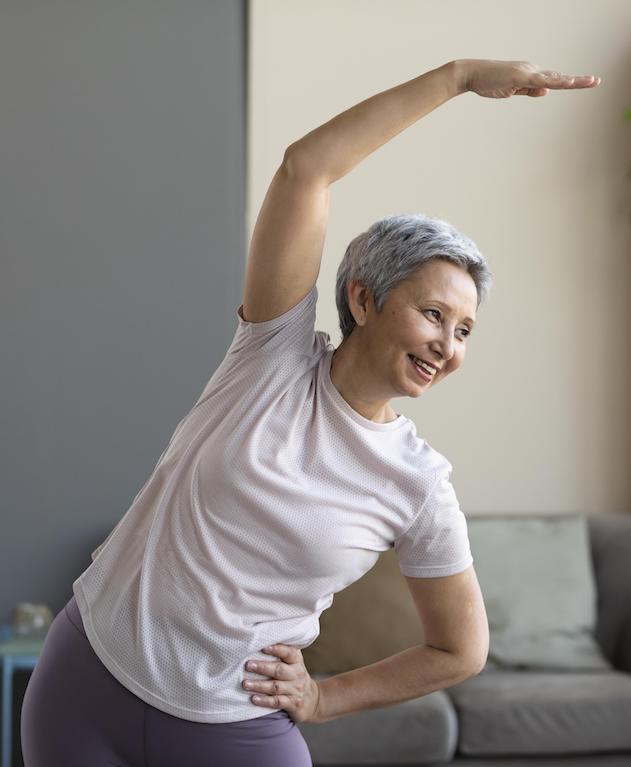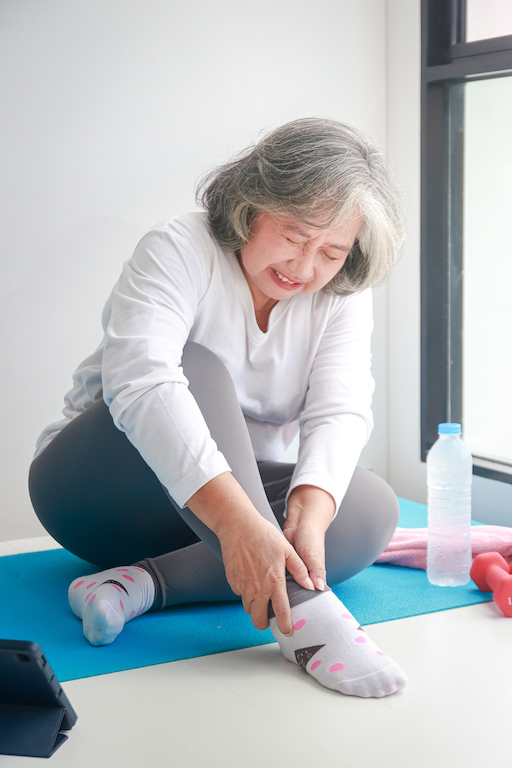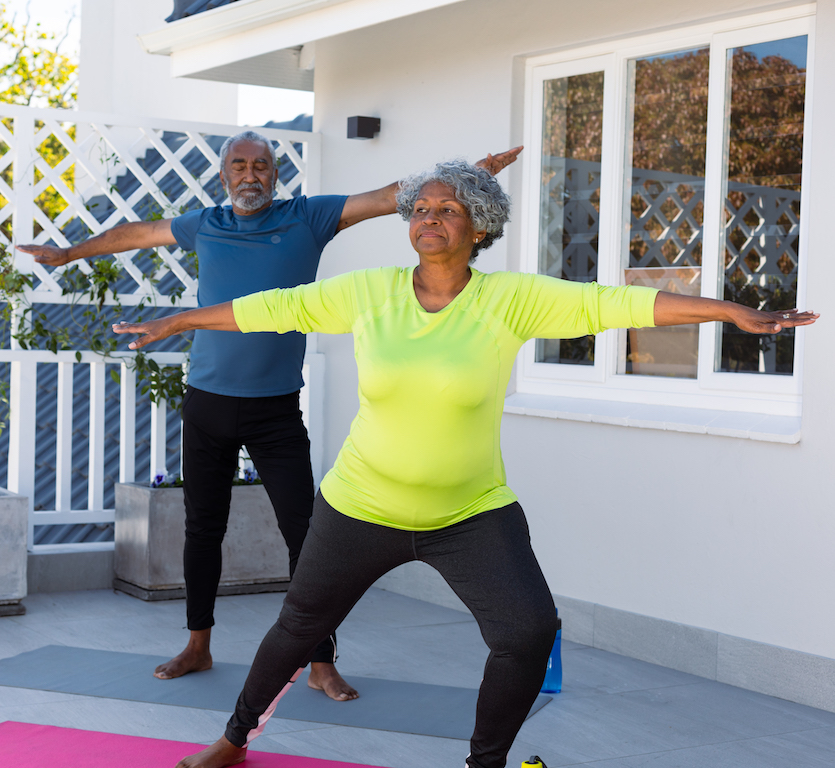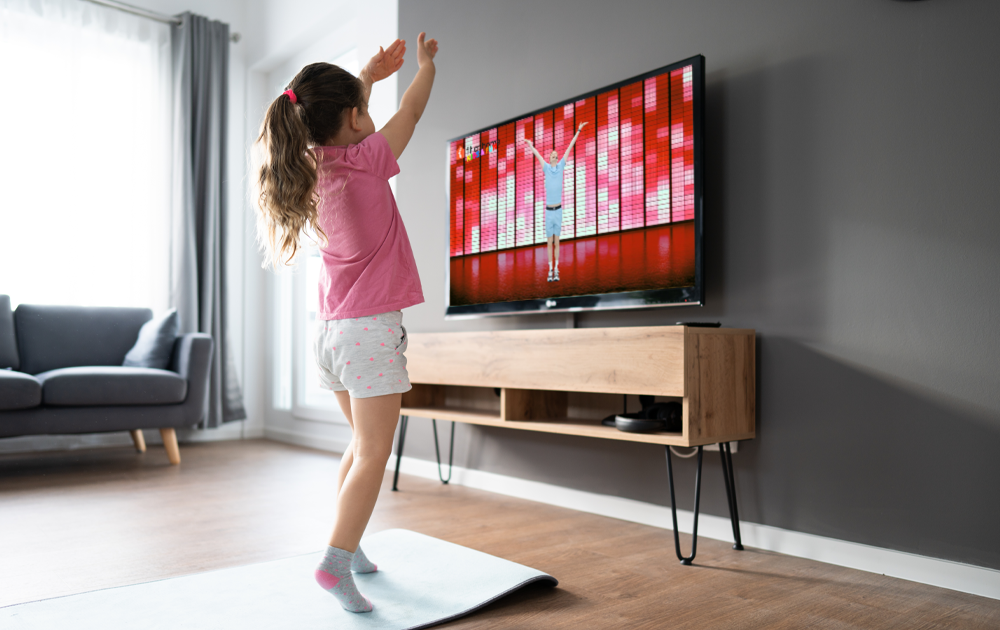As we age, maintaining an active lifestyle becomes increasingly important for our overall well-being. Exercise not only helps seniors stay physically fit but also promotes mental and emotional health. If you’re an elderly individual looking to stay active from the comfort of your own home, this guide is for you.
Unlocking the benefits
Working out for the elderly at home offers numerous benefits that contribute to their overall well-being. First and foremost, it promotes physical health. Seniors can engage in tailored exercises that enhance strength, balance, and flexibility, reducing the risk of falls and injuries. This leads to increased independence and a higher quality of life.

Furthermore, home workouts are convenient and can be personalized to meet individual needs and preferences. They eliminate the barriers associated with traveling to a gym, making it easier for seniors to maintain a consistent fitness routine. Regular exercise also supports mental health, reducing the risk of depression and cognitive decline.
Home-based exercises for seniors
Incorporating a regular exercise routine is crucial for maintaining health and vitality, especially for seniors. For elderly individuals looking to stay active in the comfort of their homes, here are the top 6 exercises tailored to their needs.
- Chair squats: Begin by sitting in a sturdy chair and stand up, using your leg muscles. This exercise helps strengthen the legs, improving mobility and balance.
- Wall push-ups: Stand facing a wall, place your hands shoulder-width apart, and push your body towards the wall. This simple exercise enhances upper body strength and can be adjusted for different fitness levels.
- Leg raises: While seated, extend one leg straight out and hold for a few seconds. Alternate legs to improve lower body strength and flexibility. This exercise also assists in maintaining healthy circulation.
- Seated marching: Sit on the edge of a chair and march in place, lifting your knees as high as comfortable. This low-impact exercise boosts cardiovascular health and leg strength.
- Arm circles: While seated or standing, extend your arms to the sides and make circular motions. Arm circles enhance shoulder mobility and can help alleviate stiffness.
- Balance exercises: Stand near a stable surface and practice balancing on one foot. Gradually increase the duration and switch to the other foot. These exercises improve stability and reduce the risk of falls.
For optimal results, aim to perform these exercises for at least 20-30 minutes, several times a week. Always consult a healthcare professional before beginning any new exercise regimen, especially if you have underlying health concerns. Staying active at home can greatly enhance the overall well-being and quality of life for elderly individuals.

The impact of exercise on the aging body
As we age, it’s easy to assume that exercise becomes less important, or even risky. However, staying physically active as an elderly individual can have profound benefits for your body and overall well-being. Regular workouts, tailored to your abilities and needs, can be a game-changer.
First and foremost, exercise helps maintain muscle mass and bone density, crucial for preventing age-related frailty and osteoporosis. It also improves balance and coordination, reducing the risk of falls. Furthermore, physical activity boosts cardiovascular health, reducing the chances of heart disease and stroke.
Working out while elderly also enhances mental health by reducing stress, anxiety, and depression. It stimulates the release of endorphins, promoting a positive mood and cognitive function. Additionally, exercise can help manage chronic conditions like diabetes, arthritis, and hypertension.
Prioritizing mental health in aging
In an aging society, addressing mental health for the elderly is of paramount importance. The golden years should be marked by contentment and fulfillment, but mental health issues often go unnoticed in this demographic. It’s crucial to recognize the unique challenges faced by older adults and take proactive steps to support their emotional well-being. Loneliness and isolation are common factors that contribute to mental health struggles among seniors.

Regular social interactions, whether through family visits, senior centers, or community activities, can significantly improve their mental state. Additionally, engaging in cognitive exercises like puzzles or reading can help maintain cognitive function and reduce the risk of conditions like dementia.

The power of nutrition, exercise, and sleep
A balanced diet, regular exercise, and adequate sleep are essential components of mental health. Encouraging seniors to stay physically active, eat nutritiously, and maintain a consistent sleep schedule can have a positive impact on their mental well-being. Furthermore, open communication and awareness can break down the stigma surrounding mental health in the elderly. Family members, caregivers, and healthcare providers should be vigilant in recognizing signs of depression, anxiety, or cognitive decline and seek professional help when necessary.
In conclusion, maintaining an active lifestyle is paramount as we age, contributing significantly to our overall well-being. Exercise not only keeps seniors physically fit but also fosters mental and emotional health. For elderly individuals seeking to stay active at home, the provided exercises can be instrumental in enhancing strength, balance, and flexibility. These exercises promote independence and convenience, eliminating the barriers associated with traveling to a gym.
Mental health is equally vital for seniors, and addressing it should be a top priority. Loneliness, isolation, and cognitive decline are common challenges, but they can be mitigated through social interactions, cognitive exercises, a balanced diet, exercise, and adequate sleep.
Incorporating these elements into daily life can lead to a fulfilling and mentally sound aging experience. By prioritizing physical and mental health, seniors can enjoy their golden years with vitality and happiness, knowing that they have the tools to thrive in every aspect of life.

We love to make you move!
✓ Work out in front of your tv whenever you want.
✓ 24/7 on-demand with more than 500 workouts.
✓ For the whole family.
Working out with Fit at Home
Fit at Home is your NUMBER ONE fitness app! Turn your living room into your own gym with over 500 workouts for the whole family. This transforms your TV into your own yoga studio, fitness club, or meditation space. Fit at Home is available on-demand 24/7 for exercising wherever and whenever you want with just one click on the remote control.
